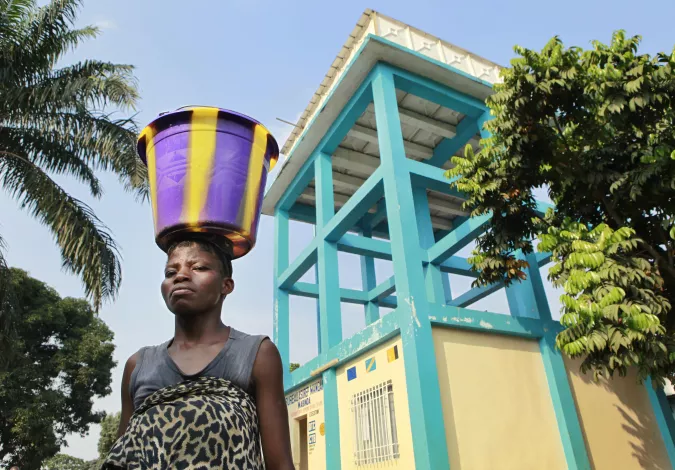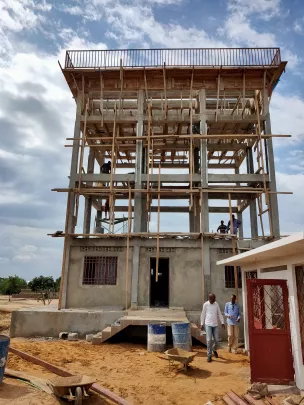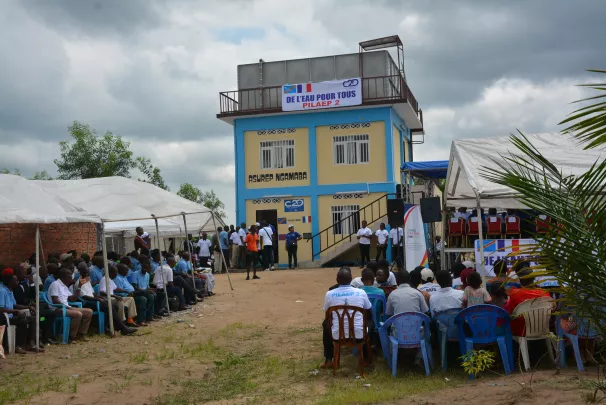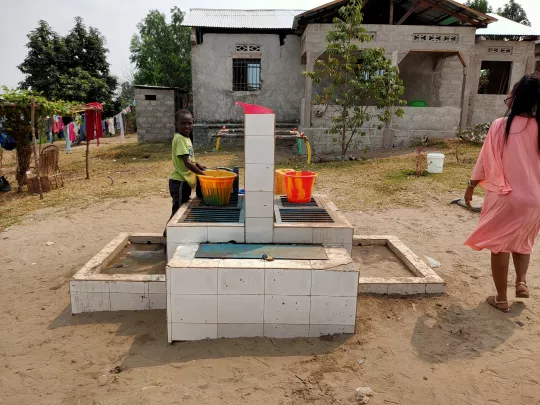Context of the project
The PILAEP 2 (Promotion of Inoovative Methods for Access to Drinking Water, Sanitation and Hygiene) project is the extension of the PILAEP 1 project (2008-2014) to 26 outlying districts of East and South Kinshasa: the aim is to improve access to drinking water, sanitation and hygiene for 400,000 people (+12.3% in 2021). AFD has stated that PILAEP 1 and PILAEP 2 have provided access to water for more than a million people and created more than 1,200 direct jobs. In 2022, an initial study of the impact of PILAEP 2 showed a definite improvement in access to drinking water: 90% of residents live less than 250m from a standpipe, time saved on collection is 1 hour per day and confidence in the ASUREPs is higher than in other districts.
The project has two components:
- Water, Sanitation and Hygiene: drinking water supply and sanitation infrastructure works in the 26 areas concerned and professionalisation of the ASUREPs
- Consolidation and regulation of the model": establishment of a regulatory system and capacity-building for ASUREPs and their federation (FEDASU)
For this mission, SHER Ingénieurs-Conseils, GRET and Mott MacDonald are carrying out the delegated project management (MOD), i.e. drawing up the procedures manual for all the financial and administrative operations carried out during the project.
These operations include:
- Drawing up the detailed budget for the project as a whole, the implementation schedule and the procurement plan.
- Ensuring supervision and technical support for the activities of the project manager: technical studies, supervision of works, social engineering, etc.
- Taking charge of the organisation of activities relating to the strengthening of ASUREP and FEDASU, particularly for legal issues (external consultations), the organisation of workshops, exchanges of experience, the production of information documents for the capitalisation and dissemination of project results, etc.
- Drawing up contracts and monitoring their administrative and technical implementation in close collaboration with the project manager: quality of works, compliance with technical specifications and deadlines, statements of account and payments, penalties, etc.
- Leading discussions on institutional developments and support for stakeholders, as well as providing support, advice and training to ASUREPs once the system has been commissioned.
- Facilitating an impact study of the project led by the Institut National de la Statistique (INS). In this capacity, ensuring coordination between the INS, the project manager and the evaluators for the programming and the implementation of the surveys.
- Supporting the drafting of a memorandum of understanding between the State, represented by the Ministry of Finance, the Ministry of Water Resources and Energy, the CNAEA and REGIDESO so as to avoid, in the medium term, any overlap between the areas served by the networks managed by the ASUREPs and the areas supplied by the REGIDESO networks.
- Providing technical support for the organisation of the meetings of the Technical Monitoring Committee (TMC) and managing appropriate communication on the project.



